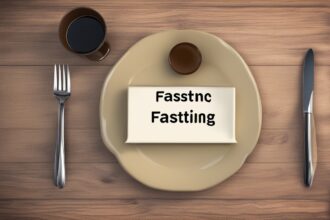Fasting has been practiced for centuries across various cultures and religions, often as a means of spiritual purification or discipline. In recent years, however, it has gained significant attention for its potential health benefits. One of the most popular forms of fasting today is intermittent fasting (IF), a dietary approach that alternates between periods of eating and fasting. This post dives deep into Understanding Intermittent Fasting Benefits, exploring how this practice can impact your health, lifestyle, and overall well-being.
What is Intermittent Fasting?
Intermittent fasting is not a diet in the traditional sense but rather an eating pattern. It focuses on when you eat rather than what you eat. Common methods include the 16/8 method (fasting for 16 hours and eating during an 8-hour window), the 5:2 diet (eating normally for 5 days and restricting calories on 2 non-consecutive days), and alternate-day fasting. By cycling between fasting and eating, the body is believed to undergo metabolic changes that contribute to numerous health benefits. Understanding Intermittent Fasting Benefits starts with recognizing how these cycles can optimize bodily functions.
If you’re new to fasting, you might want to explore our guide on Beginner’s Guide to Fasting to get a foundational understanding of different fasting practices.
Weight Loss and Metabolic Health
One of the most well-known reasons people turn to intermittent fasting is for weight loss. During fasting periods, insulin levels drop, which facilitates fat burning as the body turns to stored fat for energy. Studies suggest that IF can help reduce body weight and improve metabolic health by enhancing insulin sensitivity. Understanding Intermittent Fasting Benefits in this context reveals how it can be a sustainable approach to managing weight without the need for extreme calorie restriction.
Additionally, IF may boost metabolism by increasing levels of norepinephrine, a hormone that helps break down fat. For more on how fasting impacts metabolism, check out our detailed post on Fasting and Metabolism.
Improved Brain Health and Cognitive Function
Intermittent fasting doesn’t just benefit the body—it also supports brain health. Research indicates that IF can increase the production of brain-derived neurotrophic factor (BDNF), a protein that promotes the growth of new neurons and protects against neurodegenerative diseases like Alzheimer’s. Understanding Intermittent Fasting Benefits for brain health includes recognizing its potential to enhance memory, focus, and overall cognitive function.
Moreover, fasting triggers autophagy, a cellular “clean-up” process that removes damaged cells and may protect against age-related cognitive decline. This makes IF a promising tool for maintaining mental clarity as we age.
Heart Health and Longevity
Cardiovascular health is another area where intermittent fasting shines. Studies have shown that IF can lower risk factors for heart disease, such as blood pressure, cholesterol levels, triglycerides, and inflammatory markers. By improving these metrics, fasting may contribute to a longer, healthier life. Understanding Intermittent Fasting Benefits for heart health involves appreciating how it reduces oxidative stress and inflammation—key drivers of chronic diseases.
For those interested in the connection between fasting and longevity, our article on Fasting for Longevity provides deeper insights into how IF might extend lifespan.
Enhanced Cellular Repair and Autophagy
One of the lesser-known but profoundly impactful benefits of intermittent fasting is its role in cellular repair. During fasting, the body initiates autophagy, a process where cells break down and recycle damaged components. This “self-cleaning” mechanism is crucial for maintaining cellular health and preventing diseases like cancer. Understanding Intermittent Fasting Benefits at the cellular level highlights how fasting can act as a reset for the body, promoting resilience and reducing the risk of age-related conditions.
Autophagy also plays a role in immune system regulation, helping the body fight off infections and maintain balance. This makes IF a powerful tool for overall health optimization.
Practical Tips for Starting Intermittent Fasting
While the benefits of intermittent fasting are compelling, starting this practice requires preparation and mindfulness. Begin with a simple method like the 16/8 approach, and gradually increase fasting windows as your body adapts. Stay hydrated during fasting periods, and focus on nutrient-dense foods during eating windows to maximize benefits. Understanding Intermittent Fasting Benefits also means knowing how to avoid common pitfalls, such as overeating after a fast or pushing your body too hard too soon.
If you’re looking for meal ideas to support your fasting journey, our post on Healthy Meals for Fasting offers practical recipes and tips. Additionally, consult with a healthcare professional before starting IF, especially if you have underlying health conditions. For a list of fasting-friendly supplements, check out Supplements for Fasting.
Disclaimer: The information provided in this post is for educational purposes only and should not be considered medical advice. Intermittent fasting may not be suitable for everyone, including pregnant or breastfeeding individuals, those with certain medical conditions, or individuals with a history of eating disorders. Always consult with a healthcare professional or registered dietitian before starting any new dietary or fasting regimen to ensure it aligns with your personal health needs and goals.
References
- Harvard Health Publishing – Intermittent Fasting: Surprising Update
- National Institutes of Health – Effects of Intermittent Fasting on Health and Aging
- Mayo Clinic – Intermittent Fasting: What You Need to Know
- New England Journal of Medicine – Effects of Intermittent Fasting on Health, Aging, and Disease
- Johns Hopkins Medicine – Intermittent Fasting: What is it, and How Does it Work?
- Centers for Disease Control and Prevention – Healthy Weight Loss Strategies
This content is for informational purposes only and not a substitute for professional advice.






